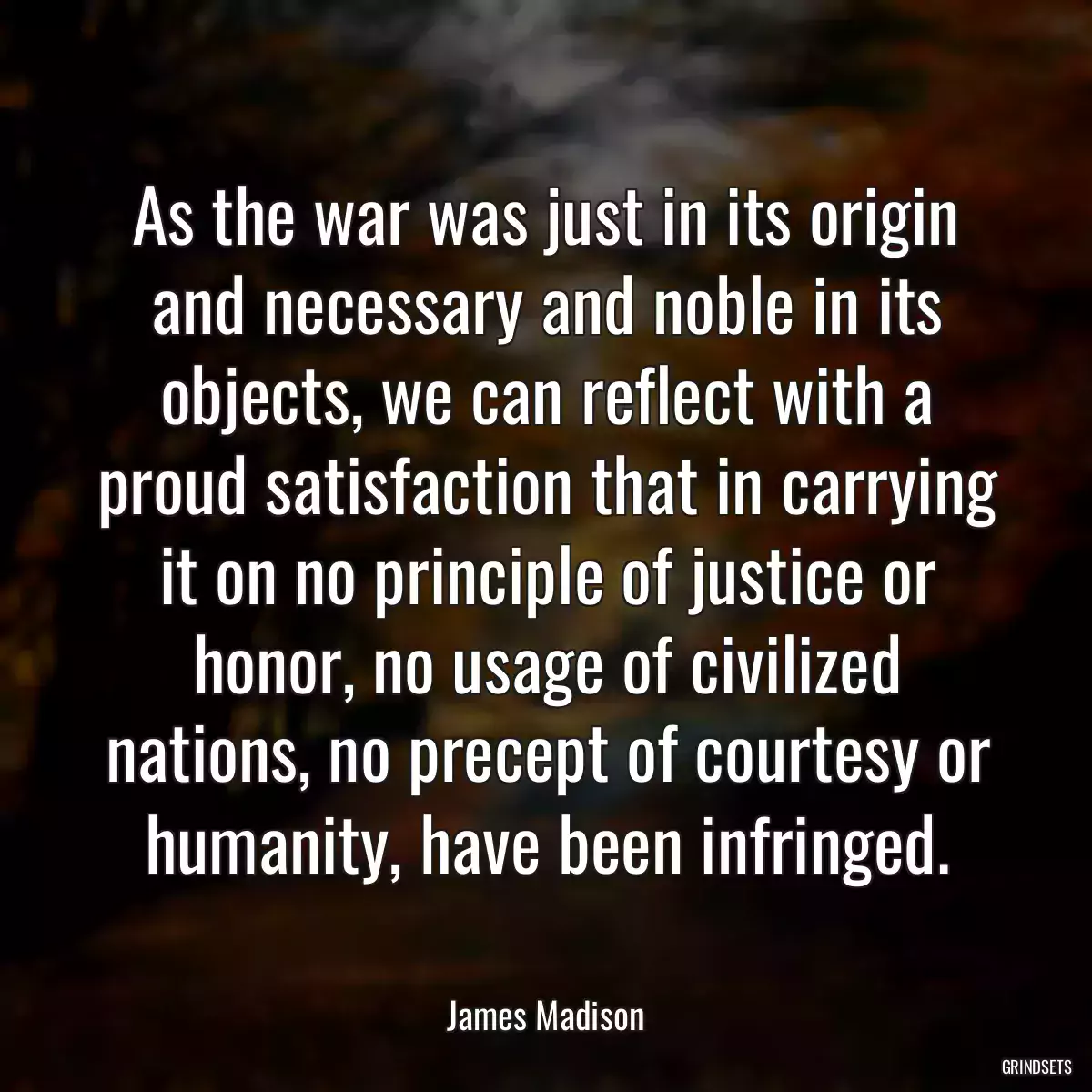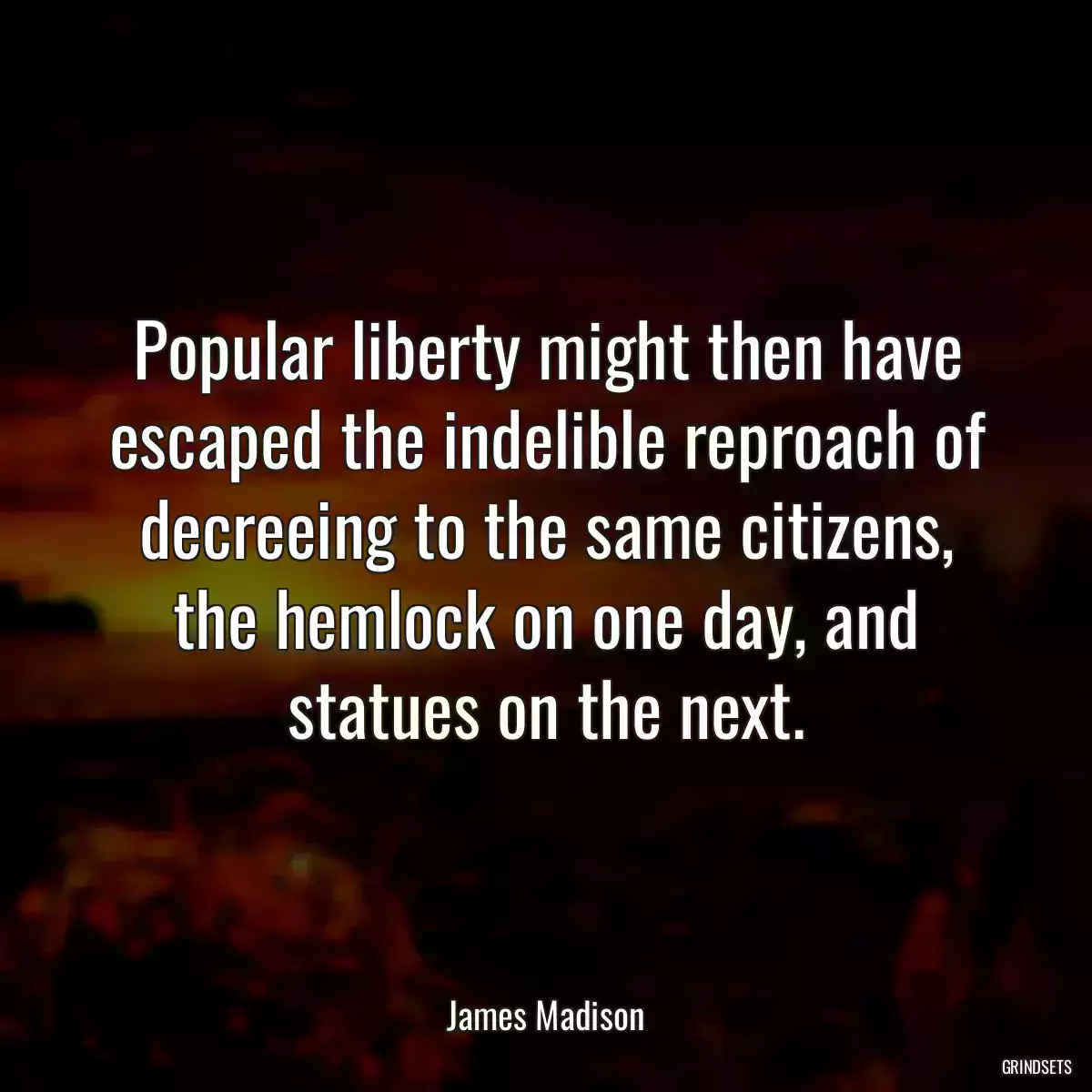
Quotes James Madison - page 4
Find dozens of James Madison with images to copy and share.

In a free Government, the security for civil rights must be the same as that for religious rights. It consists in the one case in the multiplicity of interests, and in the other in the multiplicity of sects. The degree of security in both cases, will depend on the number of interests and sects; and this may be presumed to depend on the extent of country and number of People comprehended under the same Government.
The American people owe it to themselves, and to the cause of free Government, to prove by their establishments for the advancement and diffusion of knowledge, that their political Institutionsare as favorable to the intellectual and moral improvement of Man as they are conformable to his individual and social rights.
A distinction of property results from that very protection which a free Government gives to unequal faculties of acquiring it.
You may also like
In civilized communities, property as well as personal rights is an essential object of the laws, which encourage industry by securing the enjoyment of its fruits; that industry from which property results, and that enjoyment which consists not merely in its immediate use, but in its posthumous destination to objects of choice, and of kindred affection. In a just and free government, therefore, the rights both of property and of persons ought to be effectually guarded.
[I]n the next place, to show that unless these departments be so far connected and blended as to give to each a constitutional control over the others, the degree of separation which the maxim requires, as essential to a free government, can never in practice be duly maintained.
... large and permanent military establishments ... are forbidden by the principles of free government, and against the necessity of which the militia were meant to be a constitutional bulwark.
An efficient militia is authorized and contemplated by the Constitution and required by the spirit and safety of free government.
The preservation of a free government requires not merely that the metes and bounds which separate each department of power be invariably maintained; but more especially that neither of them be suffered to overleap the great Barrier which defends the rights of the people. The Rulers who are guilty of such an encroachment, exceed the commission from which they derive their authority and are Tyrants. The people who submit to it are governed by laws made neither by themselves nor by an authority derived from them, and are slaves.

If Tyranny and Oppression come to this land, it will be in the guise of fighting a foreign enemy.
We have staked the whole future of our new nation, not upon the power of government; far from it. We have staked the future of all our political constitutions upon the capacity of each of ourselves to govern ourselves according to the moral principles of the Ten Commandments.
In Europe, charters of liberty have been granted by power. America has set the example . . . of charters of power granted by liberty. This revolution in the practice of the world, may, with an honest praise, be pronounced the most triumphant epoch of its history, and the most consoling presage of its happiness.
Knowledge will forever govern ignorance; and a people who mean to be their own governors must arm themselves with the power which knowledge gives.
The means of defense against foreign danger historically have become the instruments of tyranny at home.
If we advert to the nature of republican government, we shall find that the censorial power is in the people over the government, and not in the government over the people.
Americans need not fear the federal government because they enjoy the advantage of being armed, which you possess over the people of almost every other nation.
The advancement and diffusion of knowledge is the only guardian of true liberty.
You may also like

No man will subject himself to the ridicule of pretending that any natural connection subsists between the sun or the seasons, and the period within which human virtue can bear the temptations of power. Happily for mankind, liberty is not, in this respect, confined to any single point of time, but lies within extremes, which afford sufficient latitude for all the variations which may be required by the various situations and circumstances of civil society.